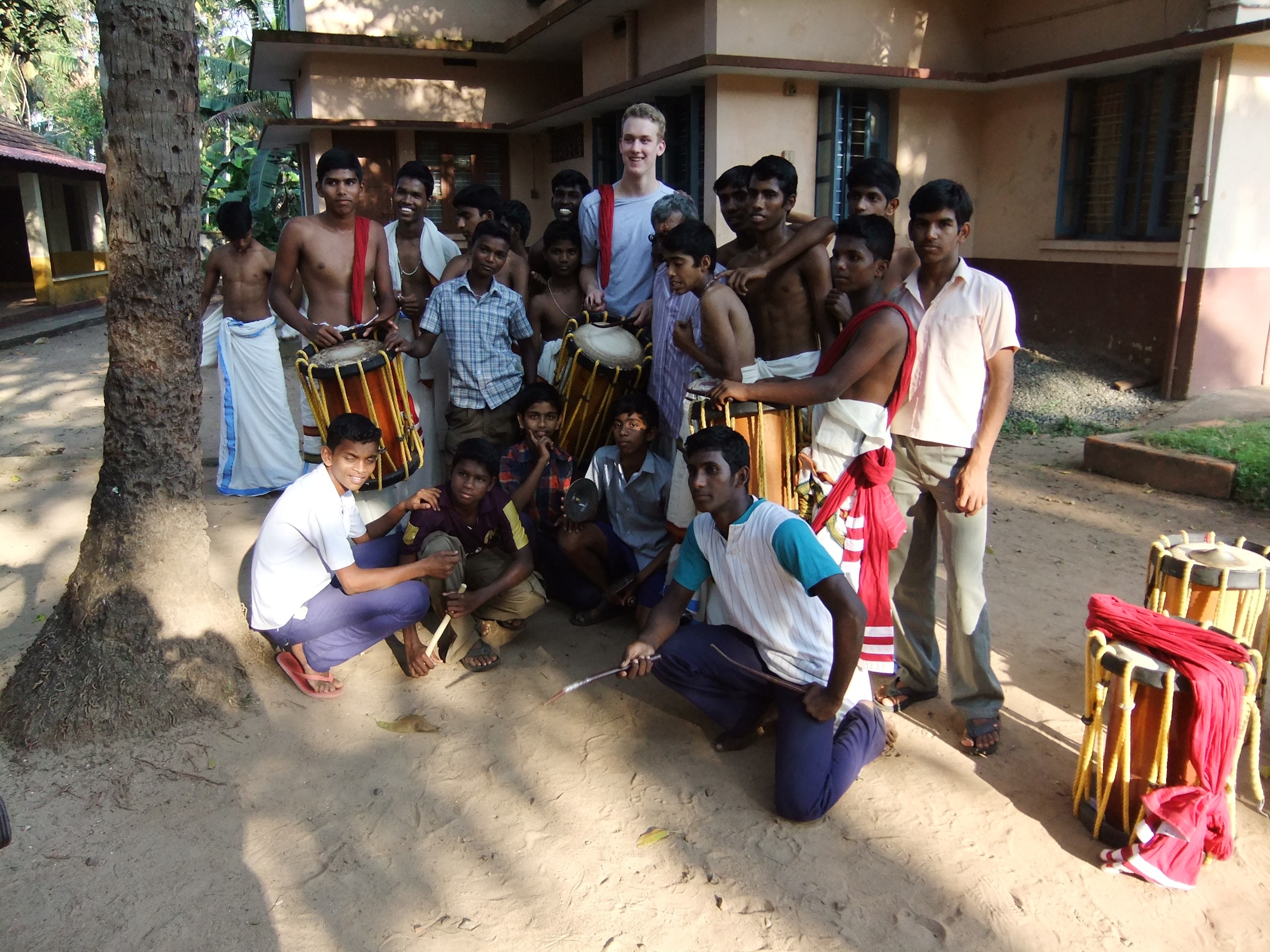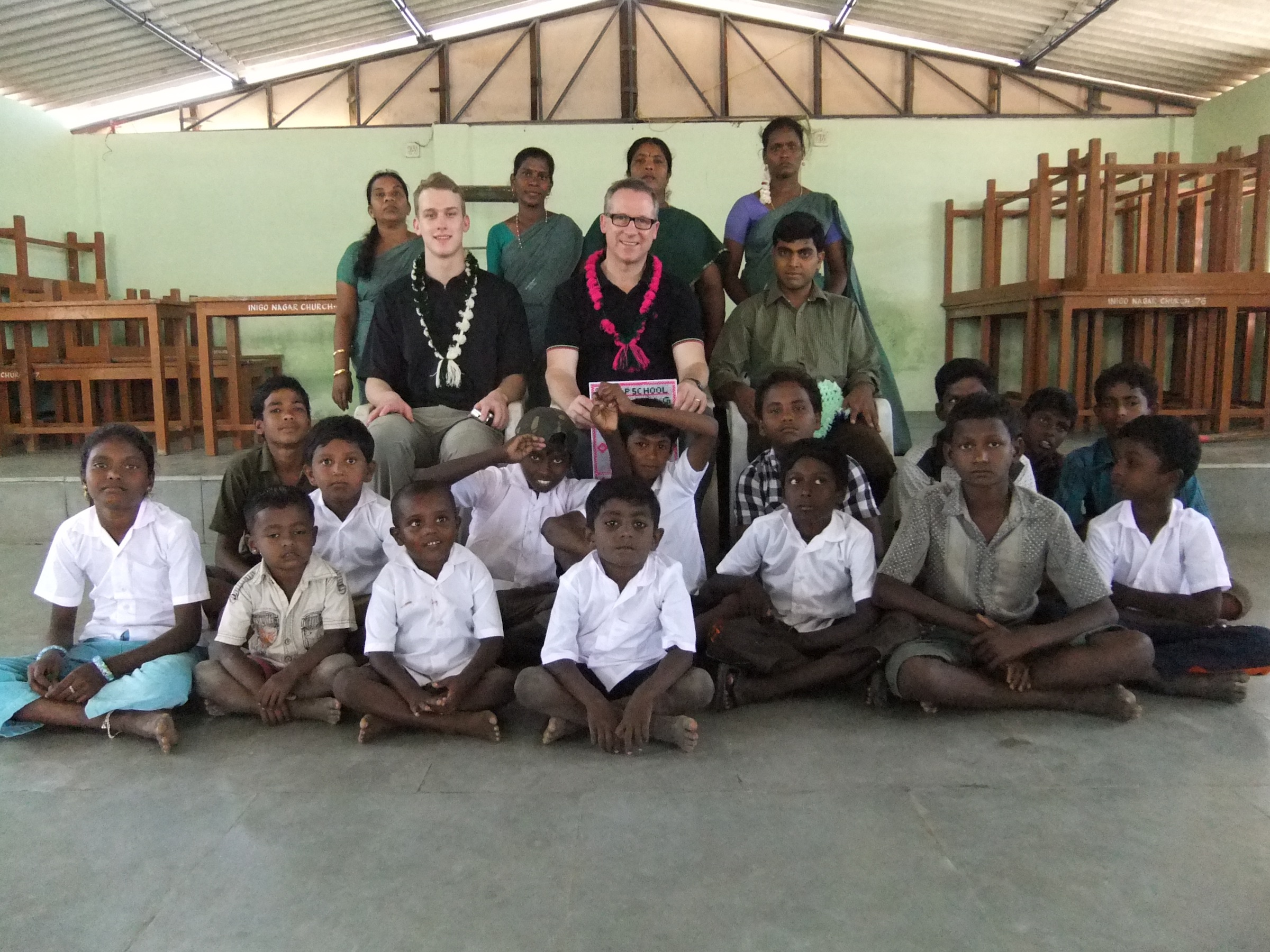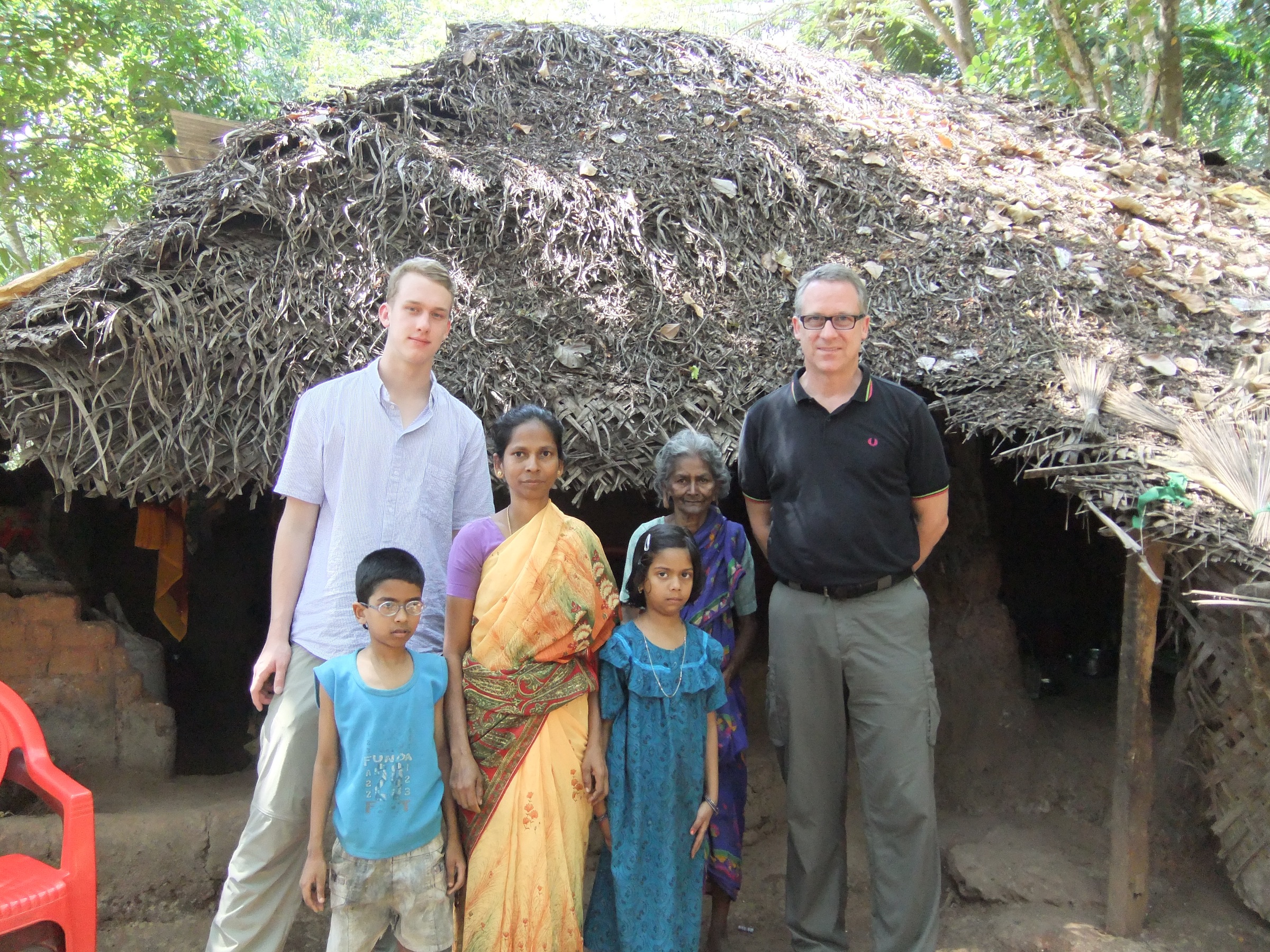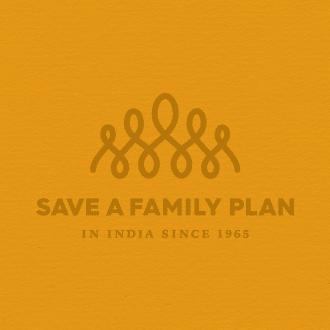
In February 2011, SAFP Canada Board member, Patrick Mahon, and his son Thomas (who was 18 at the time) travelled with SAFP throughout Kerala and Tamil Nadu. This reflection was written by Thomas Mahon in October, 2011.
I remember first arriving in India. It was around 3 in the morning and even at that time the heat and the weight and smell of the air were staggering. My father, Patrick Mahon, and I stepped out of the airport and into the night to a dense mass of people, many of them staring at us, and a road covered in innumerable idling vehicles breathing exhaust fumes into that oppressive air. Our friend, Father Augustine from SAFP India, found us and soon we were off along tortuous roads, passing people making their way in the dark to temples and churches to attend morning prayers. In the light of the sparse fluorescent streetlights, dense masses of raw jungle and buildings leered from the gloom. I got a sense of a different world, and it felt like a dream.
Our destination on that early morning was Aiswaryagram. It is the headquarters and offices of Save a Family Plan, located near Ernakulam in the province of Kerala, very near to the southern tip of India. My father is on the board of Save a Family Plan in London, Ontario, and this presented him and me with the opportunity of staying in India for a month and visiting with the organization and its people. We arrived at the beginning of the month this past February, when my father was on sabbatical and I was out of school (for I had graduated the previous year and had returned to high school just for one semester to take a few additional courses). We had a couple days to recover from jet-lag and explore the Save a Family Plan headquarters – which consists of both a building with bedrooms, kitchen, chapel and offices, and a large farm around the back – before we were off, travelling the area and doing our work with Save a Family Plan. But I say this casually – the main work of the organisation is to help poor families of the region by using money from sponsors in Canada to provide the families with the tools necessary to start an Income Generation Project, a means of establishing their own source of income, so that after a few years they will no longer need the aid of the organization. What we were doing was not dropping off sewing machines or livestock, but for the most part, we were simply visiting families involved with SAFP and seeing the progress they are making with their IGPs. Also, as we travelled around, we attended gatherings of SAFP families at each area’s Diocesan Social Service Society, and we also visited other associated organisations such as orphanages and youth hostels. In a sense, we were ambassadors of Save a Family Plan Canada.

On our journeys with SAFP we toured just the two Southern-most provinces of India where the organisation’s work is among its strongest, Kerala and Tamil Nadu. We travelled with a couple representatives from Aiswaryagram and also with coordinators from each DSSS. Everywhere we went, we were received like kings! At each house, the families would take us into their small dwelling and ask us to sit while they lavished us with their freshly prepared food and juice, always trying to give us more. It was often uncomfortable accepting food and being waited on by people who had so little, and yet it made them visibly happy to see us take and enjoy their gifts. The houses were simple and small. The families were prevalently those of widows; Kerala and Tamil Nadu border the Indian Ocean and the water claims many fishermen. There was often a solemn man’s photograph in the main room of the house above the door.
We visited families and dioceses for a couple weeks. It was overwhelming. The families were always horribly poor, faced with formidable social and economic challenges, and yet their unwavering generosity was inspiring. Their whole attitude was inspiring, as they received us always with smiles and optimistic stories.
Each experience was powerful, but one family stands out in my mind. Their dwelling was some distance from the road, and it consisted of three walls of varying brick and stone, and a thatched roof which came down low in the front to serve also as something of a wall. The house was tiny. The family came out to us instead of trying to squeeze us in, but through the front I saw all that lay inside: a single bed and a power conduit with one outlet granted to them by the Indian government, a bizarre object in such an abode. The inhabitants were a young mother, a son, a daughter, and a grandmother. Save a Family Plan support had enabled the mother to purchase a goat. The family was only in their first year of SAFP sponsorship, and the local animator explained that it was likely that with time their situation would improve significantly. But I had a difficult time being optimistic. The hardship and obstacles of this family were altogether crushing. The mother was described to us simply as an “abandoned woman.” The grandmother was old and frail and would not move or speak, perhaps she was soon to die. The son, about age 9, suffered from acute eye problems and his mother had invested much in surgery and special glasses with little apparent success. It seemed from his manner he had other issues as well, though this was not confirmed. The girl, about age 7 was healthy – but as a poor girl in rural India, all that her family could hope for her was that she would eventually be married, and dowries are invariably outrageously expensive. It was unlikely that her family could ever afford one; I wondered if the best they could ever hope for would be for the mother to work for the husband’s parents, indefinitely.

Grasping all this and looking at the family before me I came to a realisation: for the most part, the problems and troubles of my life are comparatively meaningless. I saw then the world to be wider than I could have ever understood before the trip, and that it is on this reality that I should focus my own life’s interests. I thought of the playful, exuberant children we had seen in the orphanages, the generosity of the families, and the matter-of-fact way this family had recounted its hardships. The people we had visited are all confronted with immense challenges, and could be duly despondent from time to time in the face of these, but, somehow, they could still be happy too. I wondered if, in large part, this is because they are somehow ‘free’ of the negligible things we so often let haunt us in our lives in the privileged West.
As we left this family, the children waved and smiled and I tried to do the same.

